Welcome to the realm of homoeopathy, lets continue our journey to understand the mind rubrics interpretation from Kent’s repertory.
Here we are going to dive into M series rubrics.
These mind rubrics serve as a valuable tool for homeopaths to gain profound insights into the mental and emotional aspects of patients.
By learning how to interpret these rubrics, we empower ourselves to accurately select the most appropriate remedies for individuals’ unique mental and emotional states.
Table of Contents
ToggleMAGNETIZED, desire to be

“Magnetized, desire to be” suggests a strong longing or aspiration to be irresistibly attractive or captivating to others, like a magnet drawing them in.
This desire can stem from seeking validation, acceptance, or a sense of power over others.
It may manifest in wanting to be admired, appreciated, or loved by those around us.
However, it’s important to recognize that seeking external validation and basing self-worth solely on others’ opinions can be unhealthy.
True fulfilment comes from being authentic and self-confident, valuing one’s own worth without solely relying on external validation.
Building genuine connections and relationships based on mutual respect and understanding is more fulfilling than merely seeking to be magnetized to others.
Remedies: Calc., Phos., Sil.
MALICIOUS

An adjective that implies a strong aim or desire to injure, trouble, or cause harm to others is malicious.
Malicious refers to someone who has bad intents and may behave cruelly or rudely toward others, frequently without cause or provocation.
Malicious behaviour might include distributing untrue information, being dishonest, or purposefully hurting another person’s feelings or body.
Such conduct is hurtful and destructive, and it frequently results from a deep-seated grudge, jealously, or a desire for vengeance.
Remedies: Nux-v., Stram.
See Hatred by following the link.
MANIA/MADNESS
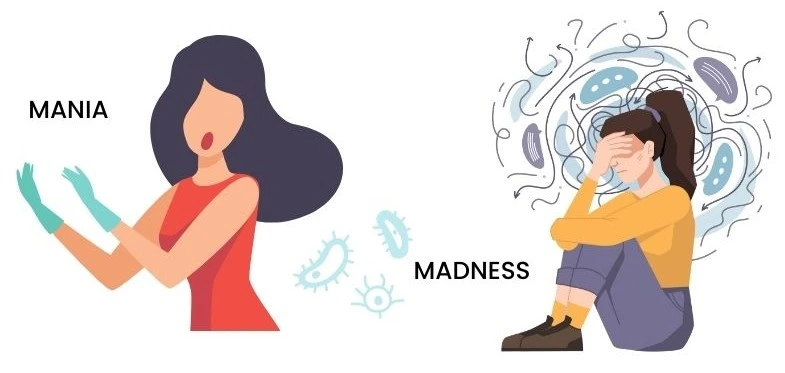
Mania is a psychological condition that is characterized by an intensified and enduring feeling of excitement, enthusiasm, or energy.
- Mania can cause intense happiness, hyperactivity, and a decreased need for sleep in its victims.
- Mania, however, can also result in reckless, impulsive conduct, poor judgment, and a lack of focus or attention.
- Bipolar disorder, a mood condition characterized by alternating periods of mania and depression, is frequently linked to mania.
The term “madness” is used to characterize a serious mental illness or insanity.
- It refers to a loss of reality awareness that results in incorrect ideas, perceptions, and actions.
- People who are insane may have trouble telling what is real from what isn’t, suffer hallucinations, and have delusions.
- Numerous things, such as mental disease, drug addiction, excessive stress, or neurological disorders, can lead to madness.
Although both mania and madness are extremely severe mental conditions, they differ in their unique traits and underlying causes.
Remedies: Ars., Bell., Hyos., Lyc., Stram., Verat.
MANIA-A-POTU
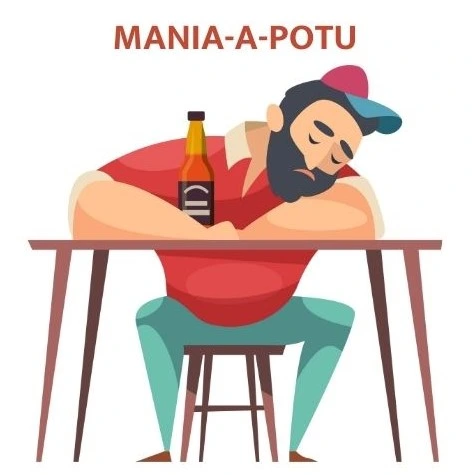
The phrase “mania-a-potu” is used to describe a particular kind of delirium or mental disorientation that develops as a result of binge drinking.
It is sometimes referred to as alcohol withdrawal delirium or alcoholic delirium.
After a protracted period of heavy drinking, this condition generally develops when people abruptly cease or dramatically reduce their alcohol intake.
Confusion, agitation, hallucinations, tremors, and in severe cases, seizures, are some signs of mania-a-potu.
It is a dangerous medical disease that has to be treated right away since it could endanger your life.
Supportive care, controlling withdrawal symptoms, and addressing any underlying health conditions are all part of the treatment for mania-a-potu.
In order to safely manage withdrawal symptoms and kick their alcohol addiction, those who are battling with alcohol consumption must get expert assistance.
Remedies: Agar., Lach., Nat-m., Nux-m. Stry.
MANUAL WORK, fine work
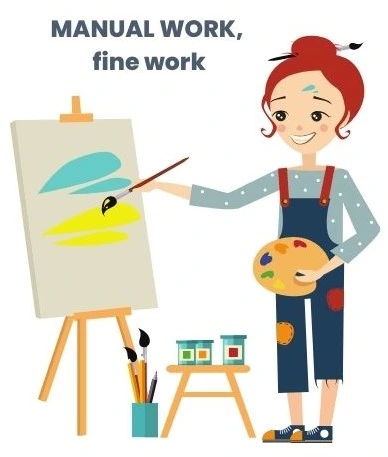
Work that is done manually, as opposed to by a machine, requires physical effort.
Craftsmanship and fine manual labour, like woodworking, require talent and attention to precision.
The ability to create beautiful things requires perseverance and a steady hand.
When artists and artisans use fine physical labour to create one-of-a-kind, breathtaking works of art, it demonstrates their talent.
Remedies: Graph., iod.
MARRIAGE the idea of seemed unendurable

The statement “the thought of marriage seemed intolerable” denotes that the concept of getting married is intolerably difficult or tough to stomach.
It suggests that the idea of entering into a lifelong partnership and all the obligations and difficulties that go along with it feels too much to bear or unachievable.
This emotion may be brought on by personal anxieties, doubt, or worries about the demands and adjustments that marriage entails.
To resolve any concerns and make wise decisions for the future, it’s critical to acknowledge these feelings and be open with one’s spouse.
Remedies: Lach., pic-ac., puls.
MEDDLESOME
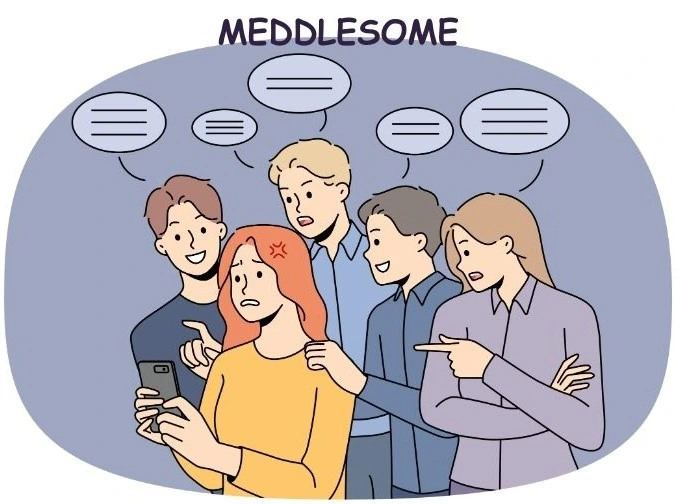
Anyone who meddles with other people’s affairs without their consent is considered meddlesome and irksome.
Relationship tension results from their attempts to exert control or influence decisions without respecting personal space or limits.
To have respectful interactions, it’s crucial to respect the autonomy of others and establish sound limits.
Remedies: Atro., hyos.
MEDITATION
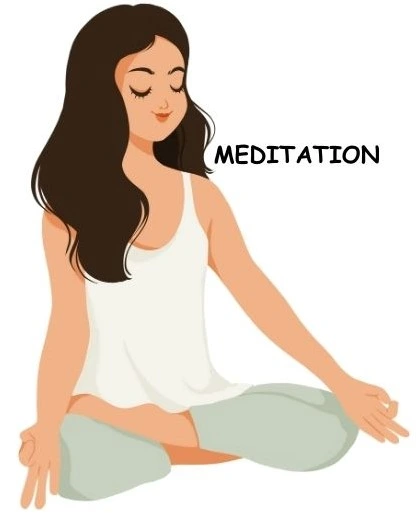
Meditation is a practice to calm our mind and feel more clear-headed.
This helps us to enhance our self-awareness and reducing stress and anxiety.
To meditate just find a comfortable place to sit or lie down with eyes closed and focus on your breath.
The idea is to quiet our busy thoughts and focus entirely on the present.
Practicing meditation on a regular basis can improve our mood, feel happier and boost our sense of well-being.
This is a great way of taking care of ourselves.
Remedies: Carb-an.
MEMORY

Active: Bell., Hyos., Lach., Op.
Active memory refers to the temporary storage and manipulation of information that our minds are currently using.
It is the part of memory actively processing data while we think and solve problems.
This memory allows us to hold temporary information in our mind, like remembering a phone number while dialling it.
This type of memory has a limited capacity and requires ongoing attention to maintain the information, as it is quickly forgotten when no longer in use.
Weakness of: Nat-c., Nat-m.
This is the inability to recall information or remembering things.
This can happen due to many reasons like aging, stress, inability to concentrate.
Person with weakness of memory finds it difficult to recall name, events or important details which might affect his day-to-day life.
MEN, dread of

The “dread of men” is a specific type of fear some people feel towards men or boys. It’s called “androphobia.”
People with androphobia may feel very scared, uncomfortable, or uneasy around males, even if there’s no reason to be afraid.
This fear can make them avoid situations where they might be around men, which can affect their daily life and relationships.
Remedies: Aur., Bar-c., cic., led.
MENTAL symptoms alternating with physical
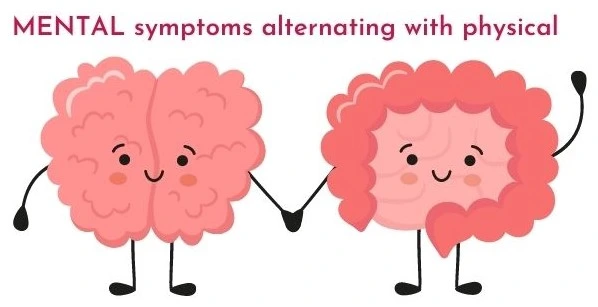
The person experiences changes in how they feel and think, along with changes in their body.
For example, they may go through periods of feeling anxious, sad, or confused, and during these times, they might also have physical symptoms like headaches, stomach-aches, or muscle tension.
The mental and physical symptoms can happen at different times or together. This can be challenging because it affects both their thoughts and emotions as well as their body.
Remedies: Cimic., croc., lil-t., plat.
MILDNESS/GENTLENESS
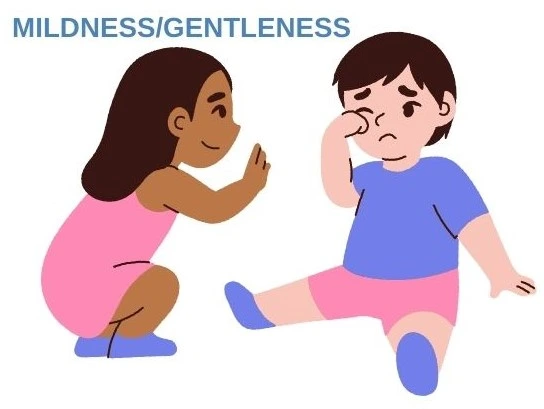
Being calm, kind, and lacking in harshness or aggression are qualities that are characterized by behaving with mildness and gentleness.
Mildness is characterized by a mild, patient disposition, as opposed to someone who is abrasive or intense.
On the other hand, gentleness means having a kind and considerate approach, treating others with empathy and sensitivity, and avoiding any harshness or injury.
Both of these qualities are about treating people with kindness and compassion, making them feel safe and cared for in our relationships with them.
Remedies: Arn., Ars., Bor., Puls., Rhus-t.
MIRTH/HILATRITY/LIVELINESS/HUMOROUS/JESTING

Mirth, hilarity, liveliness, humorous, and jesting are all words that describe a sense of joy, happiness, and fun.
- Mirth: It is the feeling of joy and amusement, often accompanied by laughter and a light-hearted mood.
- Hilarity: This word refers to extreme amusement and uncontrollable laughter, when something is very funny or entertaining.
- Liveliness: It means having a lot of energy and being full of life, making a situation or atmosphere cheerful and vibrant.
- Humorous: Something that is humorous is funny or amusing, capable of making people laugh or smile.
- Jesting: It is the act of joking or teasing in a playful and light-hearted manner, meant to amuse and entertain others.
Remedies: Cann-i., Coff., Hyos., op.
MISCHIEVIOUS
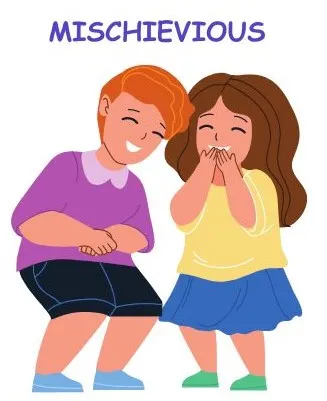
Someone or something that enjoys playing practical jokes or causing difficulty is said to be mischievous.
It’s similar to being a lovable troublemaker, but you don’t mean any real harm.
Teasing, joking, and trickery are all examples of mischievous behaviour, although they are typically done in a light-hearted and pleasant way.
The word “mischievous” may be used to describe a child who enjoys pulling practical jokes.
It’s all about having a good time and making others laugh while engaging in innocent mischief and a positive mindset.
Remedies: Anac., Cann-i., Nux-v.
MISTAKES

- 1. In calculating (doing math):
Ammonium carbonicum (am-c.), Lycopodium (lyc.), Nux vomica (nux-v.), and Sumbul (sumb) are remedies used for different types of difficulties or mistakes people may experience when doing calculations.
- Localities (sense of place or location):
Glonoine (Glon.), Nux vomica (nux-v.), and Petroleum (Petr.) are remedies used for issues related to disorientation or discomfort in specific places or environments.
- Speaking (communication):
Natrum muriaticum (Nat-m.) is a remedy used for difficulties or mistakes in speech or communication.
- Spelling (writing words correctly):
Lachesis (lach.), Lycopodium (lyc.), and Medorrhinum (med.) are remedies used for different types of spelling problems or difficulties.
- Time (sense of time):
Lachesis (Lach.) is a remedy used for issues related to the perception or understanding of time.
MOANING/GROANING/LAMENTING

Moaning, groaning, and lamenting are all different ways people express their emotions, but they have distinct meanings:
- Moaning: Moaning is a low, continuous sound made when someone is in pain, discomfort, or distress. It is often involuntary and may indicate physical or emotional suffering.
- Groaning: Groaning is a deeper and more expressive sound made in response to pain, discomfort, or unhappiness. It can be voluntary or involuntary and may reflect stronger feelings of distress or discomfort.
- Lamenting: Lamenting involves expressing grief, sorrow, or regret over a loss or unfortunate event. It includes verbalizing feelings of sadness or mourning for something or someone that is deeply missed or lost.
In summary, moaning is a continuous low sound related to pain or distress, groaning is a deeper and more expressive sound expressing discomfort or distress, and lamenting involves expressing grief and sorrow over a loss or unfortunate situation.
Remedies: Acon., Bell., Cann-i., Kali-c., Zinc.
MOCKING

When someone taunts or ridicules another person in a way that can offend them, that is mocking.
It involves mimicking or duplicating someone in an effort to humiliate or make them feel miserable.
Mocking is cruel and can make a person embarrassed or self-conscious.
It’s crucial to show others respect and kindness, avoiding from acting in a way that can harm their feelings or confidence.
Remedies: Lach.
MONOMANIA
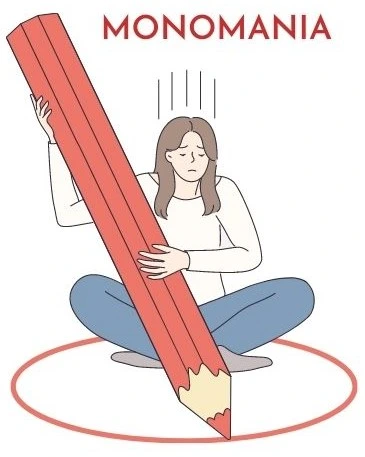
A state of excessive obsession or fixation with a single concept, thinking, or interest is referred to as monomania in psychology.
It refers to having trouble thinking about anything else because of an excessive amount of concentration on one item.
Monomaniacs may obsessively think about the same thing or engage in the same activity over and over again.
This obsessive attention can interfere with their regular activities and social relationships.
Since monomania is a rare condition, managing and addressing its effects on an individual’s wellbeing may necessitate expert assistance and support.
Remedies: Ign., sil.
MOOD/HUMOR

Agreeable
Agreeable mood refers to a positive and pleasant emotional state where a person feels content, happy, and harmonious.
Remedies: Alum., Bell., Bov., Ferr., Ign., Iod., Lyc., Plat., Sars., Sul-ac., Zinc.
Changeable/instability
Changeable or instability in mood describes an emotional state where a person’s feelings and moods fluctuate or shift frequently.
They might experience rapid changes in emotions, going from happy to sad or from calm to irritable.
Remedies: Ign., Lyc., Puls., Sars., Zinc.
MOONLIGHT

In the context of homeopathy, “moonlight” is not directly related to the natural phenomenon of moonlight. Instead, it refers to a specific symptom or characteristic associated with certain telluric events.
Remedies: Ant-c., bell., thuj.
MORAL, feeling, want, of
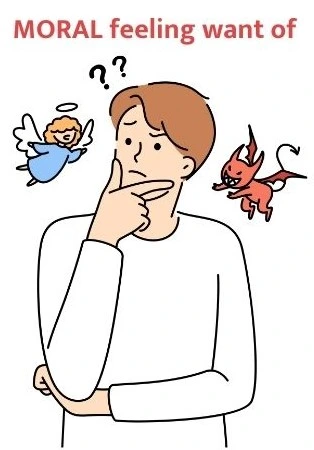
This is the psychological state of not having enough morals or ethical ideals.
It describes a situation in which a person may experience feelings of emptiness, inadequacy, or discontentment as a result of lacking strong moral convictions or acting ethically honourably.
It might also signify a desire or wish to develop or acquire higher moral values. A desire to reflect and change one’s actions to better reflect higher moral standards may result from this emotion.
Remedies: Anac., Kali-br., laur.
MOROSE/SULLEN

The fundamental distinction between “morose” and “sullen” is found in their usage and finer distinctions:
Morose
“Morose” refers to someone who is gloomy, morose, or irritable, frequently with a lingering sadness or depression. It implies a long-lasting, perspirant emotional state of unhappiness or discontentment.
Sullen
“Sullen” also describes a depressed attitude, however it frequently conveys a transient or fleeting emotional state. A person who is grumpy may express annoyance or resentment in response to a particular event or circumstance without necessarily feeling depressed for an extended period of time.
In conclusion, “sullen” conveys a transient or situational moodiness or resentment, whereas “morose” suggests a more lasting and chronic sadness. Both terms refer to unpleasant feelings and a lack of joy, although.
Remedies: Anac., Aur., Nux-v., Puls., Sil.
MORTIFICATION/CHAGRIN

Mortification
This means feeling extremely embarrassed, humiliated, or ashamed due to something that happened, especially when it’s a public or significant event.
It’s a strong feeling of disappointment and self-consciousness that arises from a perceived failure or embarrassment.
Chagrin
Chagrin refers to a feeling of annoyance, frustration, or disappointment caused by a situation that didn’t turn out as expected or desired.
It’s the emotion you experience when things don’t go your way, and you feel let down or irritated by the outcome.
Both mortification and chagrin are negative emotions that arise from situations that didn’t meet expectations or led to embarrassment and disappointment.
Remedies: Coloc., Ign., lyc., Nat-m., pall., ph-ac., Staph.
MUTILATING his body

Intentionally causing serious hurt or damage to one’s own body is referred to as “mutilating his body”.
Self-harm or self-destructive activity, such as cutting or self-inflicted injury, may be involved in this, frequently as a reaction to emotional anguish or discomfort.
It’s a grave and alarming conduct that might point to unresolved mental health problems.
In order to address the underlying emotions and discover healthier coping mechanisms for their feelings, someone who is self-mutilating must get support and assistance from a reliable person or a mental health professional.
Remedy: Ars.
CONCLUSION
As we wrap up our exploration of the fascinating M Series Mind Rubrics in homeopathy, let’s remember the valuable wisdom it offers for our well-being.
By understanding how homeopathic remedies can affect our mental and emotional health, we have the power to find balance and harmony within ourselves.
Let the knowledge gained from this journey guide us on a path of holistic healing and personal growth.
The secrets of homeopathy can continue to inspire us as we strive for a balanced and fulfilling life.
Never stop learning and gaining practical experience to excel in the field of homeopathy.
